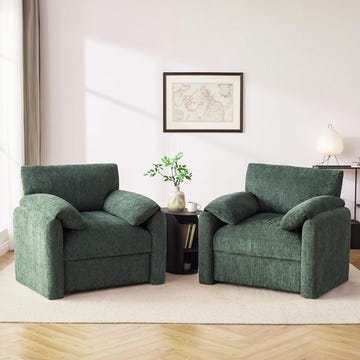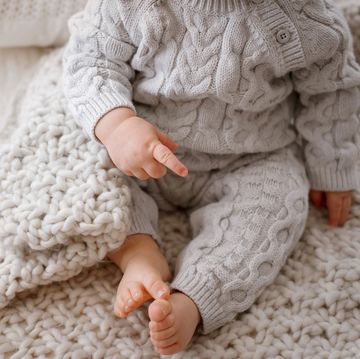A Marathoner's Review of the Best Running Vests
We tested and picked the best running vests for ultras, marathons and trail running.

We've been independently researching and testing products for over 120 years. If you buy through our links, we may earn a commission. Learn more about our review process.
When you add miles and forested terrain to your runs, even the best running belts won't cut it anymore. Instead, you'll need to swap to a running vest to carry all your essentials, including a significant water supply for the hours in the woods. Plus, you'll need pockets for you phone, keys, energy gels and snacks — all of which can be stored in a lightweight running vest so that you can run with your hands free.
Our Top Pick: Ultimate Direction Ultra Vesta 6.0. Our testers loved the easy-to-reach storage, zippered pockets and the two collapsible water bottles that come with the vest. Meredith Edwards, a professional athlete who competes in ultramarathons, also chose this vest as her favorite pick.
To pick the best running vests for trail running, ultras and marathons, we tested over 13 running vests, spoke to professional athletes and consulted the experts in the Good Housekeeping Institute Textiles and Fitness Labs. Ahead, find the best running vests to wear during your next race, whether it's a quick three miles or a grueling 100-miler.
Ultimate Direction Ultra Vesta 6.0
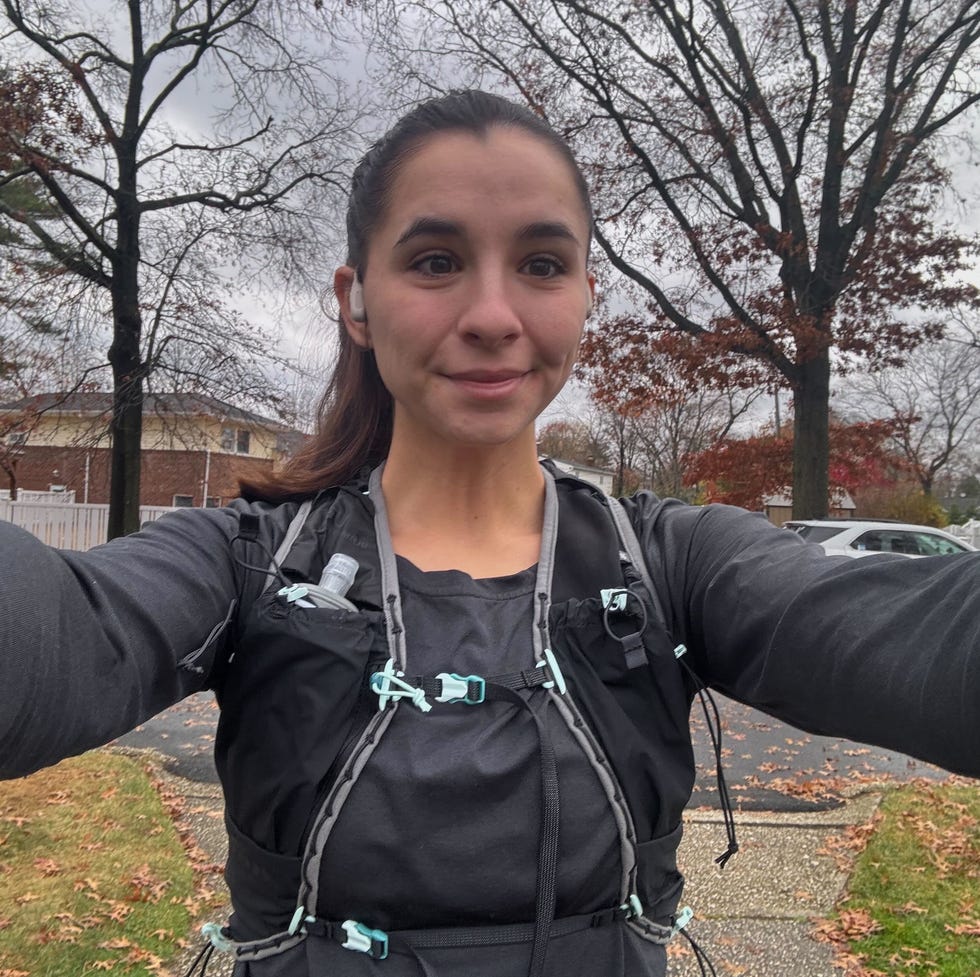
Pros
Comes with two water bottles
Multiple zippered pockets
Lightweight
Comfortable and did not cause chafing on our testers
Cons
Not ideal for larger chests
Water capacity: 12 liters | Weight without water: 0.50 lb | Sizes: Women's S–XL and Men's S–XL | Included items: 2 Body Bottle III water bottles | Compatible with hydration bladder: Yes
THE DETAILS: Ultimate Direction makes my favorite running belt (which is low in stock, but you can shop last year's version) — and they did not disappoint with the Ultra Vesta 6.0, which was the top pick of the brand's vests we tested. As a marathon runner and avid hiker, I think this vest is an excellent option for anyone running in forested trails or doing long runs on pavement. The vest includes four hooks and bungee loops to attach trekking poles and there is a men's version with two additional color options.
STORAGE: On my runs, I filled both water bottles and placed my phone, keys, two energy gels and a granola bar in the multiple pockets, but I definitely could fit more. "I was able to grab everything with ease on my runs, and not having to worry about a zipper was a lifesaver," wrote one tester. Plus, the elastics in the back can store extra layers, like windbreakers and long sleeved shirts.
TESTING NOTES: This vest felt the most breathable and comfortable to wear, and the zippered water-resistant pocket was perfect for my phone when I was sweaty or running in the rain. I also thought the design was compact and light, so I didn't notice the vest while running, but had enough pockets and storage for ultras and trail running. One tester noted that it wasn't as easy to drink water from a bottle as a hydration pack, but you can always add one to the back pocket if bought separately.
Testers approved of the fit of this vest, with one noting the buckles adjusted the fit easily whether she was wearing a jacket or just a T-shirt. "I also got warm during my run and was able to pack up my coat in the back pocket which was great," she wrote.
This vest is sleeker than other options we tried but can look bulky around larger chests. One online reviewer said the vest "fits okay but it looks ridiculous" on them because of the awkward fit around larger chests.
Pros
Under $100
No bouncing while running
Comes with a safety whistle
Tons of pockets
Cons
Not compatible with a hydration bladder
Limited size range
Water capacity: 0.72 liters | Weight: 0.6 lb | Sizes: Women's S–L and Men's S–L | Included items: 2 Hydraulics 360 mL Soft Flasks and safety whistle | Compatible with hydration bladder: No
THE DETAILS: This lightweight option is still pricey, but it's the least expensive option on our list and is still worth the investment, considering most quality running vests on the market are at least $50. Plus, Osprey regularly impresses our Lab experts with their hiking gear and backpacks. There are men's and women's sizes available.
STORAGE: The storage on this vest is phenomenal. There are two stretchy, mesh pockets that are ideal for soft and hard water bottles (but the vest comes with two soft flasks). For items that you'd like to be easily accessible, such as gels and snacks, there are two stretchy lower pockets. Plus, you can store valuables like your phone and keys in the zippered pocket along the chest and place more items in the rear pocket.
TESTING NOTES: Amy Schlinger, NASM-CPT, a health and fitness journalist based in New York, is an avid runner and has tested multiple running vests. She enjoyed how "low profile and lightweight" this vest is, making it a great first vest for trail runners. "The pack fit on my back really well and didn’t bounce around much at all," Schlinger shared.
RELATED: The 10 Best Daypacks for Hiking
Pros
Lots of storage
Includes two free soft water bottles
Lightweight
Cons
Testers reported it made them feel warmer
Water capacity: 2.5 liters | Weight: 0.50 lb | Sizes: XS–XL | Included items: 2 0.5 L soft flasks | Compatible with hydration bladder: Yes
THE DETAILS: Vests with ample storage are key to ultras and trail races with no pit stops, and this vest has it all. There are loads of pockets for water, snacks and valuables, which our testers appreciated. "It made running a long run much more realistic as I didn't have to worry about space to carry/store my belongings," one tester noted.
STORAGE: Pack this vest with tons of water thanks to its two large front pockets and included two free soft bottles, plus an internal reservoir sleeve for a 1.5 liter hydration bladder (which must be bought separately). There's also a main stretch compartment with a side zipper opening, two more top stretch pockets, a mesh pocket on the back compartment and a low back pocket with dual-side access. Trekking poles can be stored in the back, and you can even fit a thin clothing item or mini towel in the back.
TESTING NOTES: With nearly perfect scores from our testers, this running vest was a top pick for shorter trail runs and half marathons. "It's very easy to drink water while running, felt lightweight and allowed me to bring along my keys, phone, etc. without having to worry about them falling out," said one tester who wore the vest during a trail half marathon race. She appreciated the pouches for water bottles because the race did not have hydration stations, requiring her to carry water.
One tester admitted the vest made her feel warmer than she would be without it on a 45ºF day, but noted that "it's not necessarily a bad thing." While this vest may make you a bit sweatier in the summer, it can keep you warmer throughout colder-weather runs.
Pros
Comes with a free hydration bladder
Meshy inner material is breathable
Comfortable to wear
Cons
Difficult to clean
Only one size available
Water capacity: 1.5 L pack and pockets for water bottles | Weight without water: 0.77 lb | Sizes: One size | Included items: 1.5 L hydration pack and safety whistle | Compatible with hydration bladder: Yes
THE DETAILS: Our testers (myself included) gave this vest high marks in multiple categories, including comfort, storage, weight and design. The vest includes a free 1.5 L hydration bladder with a long tube that is not bothersome while running. The meshy material is breathable and while there is only one size available, you can choose between the men's version or women's fit, each of which has different color options.
STORAGE: This vest has a large back pocket for the water reservoir, two pockets for water bottles, non-zippered pockets on the chest straps and one zippered pocket for valuables."The pocket storage is perfect in my view, striking a balance by holding a couple of gels and credit card but not much more," one tester wrote. I wish there were more pockets, but the CamelBak Chase Race 4 Hydration Vest seems to have more zippered pockets on the backside for a similar price.
TESTING NOTES: Schlinger explained that CamelBak's vests are high-quality, so you can't go wrong with this brand: "They have a stellar reputation in the hydration space, and their products hold up to the name," she said.
My favorite part about this vest is that it comes with a water pack, so it's an excellent purchase if you're looking for a two-in-one deal. One tester appreciated how easy it was to fill and empty the water bladder due to the large opening, but noted that it could be difficult to clean the tube and pack. "I also am unsure how to thoroughly wash the drinking mouthpiece; it did not seem terribly dirty, but after several runs or a hike in the woods, I would be concerned about how to clean it," he shared.
I am a huge fan of this vest for hikes and trail running because it's incredibly easy to drink out of the long water tube and the pack did not bounce much as I walked and ran. "The mesh material that rests against the runner's back is extremely light and vented," one tester noted, although he admitted the vest "absorbed a fair amount of sweat" on hot days. This becomes an issue after a few runs because it is not machine washable, so it requires upkeep and frequent washing by hand.
RELATED: The Best Gifts for Runners
Pros
Lightweight
Water-repellent material
Did not cause chafing on our testers
Sleek appearance
Cons
Buckles can be confusing
Does not come with water bottles or a hydration bladder
Water capacity: 1.5 L pack and 1 water bottle pocket | Weight: N/A | Sizes: XS/S, S/M, M/L, L/XL | Included items: Detachable whistle | Compatible with a hydration bladder: Yes, fits a 1.5 L pack
THE DETAILS: Lightweight, sleek and comfortable, this vest is a popular option that doesn't bounce on runners when ordered in the correct size. The water repellent fabric reminded me of a tech swimsuit (competitive swimmers will understand), making this vest surprisingly one of the most comfortable vests I wore and unsurprisingly amazing at keeping me sweat-free and my phone dry in the misty rain.
STORAGE: The vest can hold a water bottle and has a tie to keep the bottle from bouncing or falling out. There are no zippered pockets, but the vest fits closely to your body, keeping items secure and easily accessible. The back storage can fit a 1.5 liter hydration pack and there is a hiking pole tunnel with shock cords for trekking poles.
TESTING NOTES: After running 30 miles in this vest, one tester gave it five out of five stars for every category in our performance evaluations. She was able to fit a large bag of salt tablets, five gels and an AirPods case, and said "not having to worry about a zipper was a lifesaver" when grabbing things throughout her runs.
"What seems to be a very popular hydration vest, this Lululemon pack fits well and feels really comfortable against my skin—no real chaffing or rubbing even when I was running on uneven ground," said Schlinger. "The pack stays pretty tight to my back, too—not much bouncing around which is ideal."
Testers and I agreed that some of the best qualities of this vest are how lightweight it feels and that it does not look bulky on the body. I also appreciated the detachable whistle and 360º reflectivity for safety reasons.
While the overall feedback for this vest was positive from testers, experts and myself, I have a few concerns. I had trouble tightening the belts on this vest and even after enlisting three people to help me figure it out, we were stumped. I eventually figured it out after watching this helpful TikTok, but it's not as user-friendly as other options and it's not easy to adjust while running. Plus, it'd be nice if the vest came with water bottles or a water bladder.
Pros
Long straws on water bottles
Very lightweight
Lots of storage
Large water capacity
Cons
Back pockets were difficult to grab things from while running
Water capacity: 5.2 L | Weight without water: 0.38 lb | Sizes: Women's XXS–XL and Men's XS–XL | Included items: 2 0.60 L HydraPak soft flasks, 4 L hydration bladder and safety whistle | Compatible with hydration bladder: Yes
THE DETAILS: With other vests, you'll need to remove water bottles from their pockets to sip from them. This vest includes two water bottles with extra-long straws so you don't have to remove them from the front pockets and can stay focused on your run, hike or race. There's also a women's version with different color options.
STORAGE: This vest features a zippered vertical pocket, two pockets for the hydration flasks, two non-zippered front pockets, two side pockets and one large back pocket. "You can place pretty much anything that you might need immediately within reach for quick access during your run or hike," one tester shared.
TESTING NOTES: Our testers gave this vest nearly perfect marks on every category in our performance evaluations. One tester said she prefers this vest to others that she tried, but noted the larger back pockets were difficult to access while running.
"The Ultimate Direction vest has more straps that bounce, and also puts more pressure on my lower back that ends up creating a rash. I like that this vest opts for pockets. It looks good and can hold an incredible amount," she said.
Another tester was skeptical of trying a vest, but said he was "pleasantly surprised" by the convenient, "sensibly-placed" pockets. "It was both comfortable and practical, and truly fits like a glove," he said.
RELATED: The Top-Tested Running Jackets
Other running vests we tested

- Arc’teryx Norvan 7 Vest: This lightweight vest is also a great option with plenty of pockets, but it runs a bit big. "I do wish they made it in a size XS as the small runs a tad big on me and therefore bounces around a bit, but I didn’t find that it made me not able to wear it and didn’t make it too uncomfortable," said Schlinger.
- CamelBak Trail Run 34oz Hydration Vest: With a meshy material throughout the vest's design, this is an excellent option for hot climates or summer runs. "The pack is easily adjustable, and the mesh material against my back didn’t even feel too hot—even when things get sweaty, it ventilated pretty well allowing ample airflow," said Schlinger.
- Salomon Active Skin 8: If you're looking for a vest that's suitable for runs shorter than a half marathon, Schlinger recommends this vest. This vest is also great for hikers because there is tons of storage. "I found the material to be really breathable and the pack itself had a lot of room for storage," Schlinger said.
- Nathan TrailMix 2.0 12-Liter Hydration Pack: For a bit less money while on sale than the Nathan Pinnacle Race Vest, this pack from the same brand has fewer pockets but impressive storage. Schlinger recommends this pack for trail runs or hikes because it's a bit bigger and feels heftier than other vests. "The hose actually doesn’t come off (a little tough for cleaning), but the pack itself is comfy, the straps adjust well, and the bag has enough pockets and room not only for fuel but also for a windbreaker or extra layer," she said.
- Ultimate Direction Race Vesta: Our testers also loved this vest from Ultimate Direction (just not as much as the Ultra Vesta). "The vest is very lightweight and does not look bulky on, so I didn't ever feel like it weighed me down on my runs," said one tester, who said the vest could be improved upon with some smaller pockets.
- REI Co-op Swiftland 5 Hydration Vest: This vest looks more like a mini backpack, but the large storage capacity makes it ideal for the trails, whether you're hiking or running. It has a gear capacity of five liters, comes with a free 1.5 L water reservoir, has multiple pockets and is machine washable.
How we test running vests

Our experts in the Good Housekeeping Institute test all sorts of fitness gear and attire, including running sneakers and running shorts. I also spoke to fitness experts and ultramarathoners to get a sense of what the most popular options were in the running community. Then, we enlisted 13 consumer testers to try the vests for themselves.
Here are some factors and data points we considered when testing running vests:

✔️ Comfort: Running long distances is no fun if you're uncomfortable, so we tested these vests on both long and short runs in multiple sizes to get a sense of which vests were more comfortable to wear than others. We considered how breathable the vests were while sweating, whether the material caused any chafing and how comfortable the vests were when filled with water and items.
✔️ Construction: We analyzed how useful the pockets were in each running vest, taking note of how effectively each stored phones, energy gels, snacks, keys and more. Some vests were loaded with more features than others — like bungee cords, safety whistles, light-reflective components and more. We also looked at the water supply situation, to assess how much each vest could carry in a comfortable, efficient manner. Lastly, we took into account the presence of mesh material to help air flow and keep sweat to a minimum.
✔️ Maintenance: Running can cause a lot of sweat and when you're running through the woods, vests can pick up tons of dirt. That's why we took note of which vests needed to be hand washed and which were machine washable, along with how easy the material is to clean.
✔️ Consumer testing: Runners of various fitness levels ran, hiked and walked with a running vest and provided detailed feedback and ratings. Our consumer testers rated the overall fit, comfort, appearance and effectiveness of each vest, noting whether the vest caused any chafing, was easy to clean and more.
What to look for in a running vest

✔️ Water supply: Running vests either come with pockets for water bottles, hydration bladders or both. Both have their pros and cons:
- Water bottles (especially soft, collapsible flasks) are much lighter both when filled with water and empty, but they can be frustrating when you have to take them in and out of the pockets. Edwards prefers water bottles, especially in the colder months because it's easier to keep them from freezing. "When I’m racing it's easier for me to manage my water intake and faster get my water refilled at aid stations," says Edwards.

- Hydration bladders: Also known as water reservoirs or water packs, hydration bladders are another option for water supply. Hydration bladders are typically 1.5 L packs and are easier to drink from thanks to their long tube that is clipped to the vest strap so that you can easily take sips out as you run and hike. However, these packs are typically much heavier when filled with water.
Some vests even include free water bottles or hydration bladders, so if you prefer one over the other, it's best to buy a vest that provides free supplies. "This is definitely a personal preference, and I would recommend trying both to see what works best for you," says Edwards.

✔️ Storage: The longer your runs or hikes, the more storage you will most likely need. If you're running an ultramarathon with no hydration or snack stations, you'll need tons of storage. The more water, energy gels and snacks you can fit on your vest, the better. "For UTMB that can be a lot so having a vest that fits well and can accommodate all your needs is what I like to look for," Edwards explains.

✔️ Weight: Running vests are like an extension of your body — you don't want it to weight you down as you're running uphill or sprinting to the finish line. The lighter a running vest, the better. And keep in mind that water, phone, keys and snacks all add to the weight of a vest.
✔️ Bungee cords: These are incredibly helpful if you're running very long distances on pavement and in the woods. Temperatures fluctuate throughout the day, so if you start your run early and warm up about an hour into your workout, having somewhere to store your top layer, like long sleeved shirts or a windbreaker, is ideal.

✔️ Safety components: Stefani Sassos, M.S., R.D.N., C.D.N., NASM-CPT and the Good Housekeeping Institute Nutrition & Fitness Lab Director, says reflectivity is essential, especially for long runs. If you're running in the early hours of the morning before the sun rises or after work when the sun is setting, reflective components can make you more visible to cars. Whistles on running vests are similarly important because you never know when you'll be injured or in danger and need to draw attention to yourself during a run.
Is a running belt or running vest better?

Think of a running belt as a running vest's little sibling. A belt can fit a few items like your phone, two gels, keys and sometimes a soft flask depending on the design, but usually that's it. While they fit fewer items, belts are much cheaper, feel lighter on your body and they don't cause your torso to feel warmer or sweatier than normal. This makes belts better for shorter runs on pavement, marathons that prohibit vests (like the New York City Marathon) and less ideal for trail running.
Running vests are better for ultramarathons, hiking and trail running. "It's probably more than most people would need for your average weekday run," said one tester about a running vest.
In my opinion, the best in-between option is the Ultimate Direction Comfort Belt. I use this belt for all my races and most of my training runs. It's perfect for when I just need somewhere to stash my phone, when I need a few gels or if I need to stash enough gels for a marathon. Edwards also loves this belt, and said she can carry up to two water bottles, some fuel, and poles, all while keeping the weight down for shorter workouts. At the time of writing, this belt is out of stock in most sizes. I recommend the brand's Utility Belt as a similar option or shopping the previous version of the Comfort Belt.
Why trust Good Housekeeping?

Isabella Cavallo is the Assistant Commerce Editor at the Good Housekeeping Institute and has experience testing, evaluating and reviewing fitness gear. She has participated in races ranging from a 5K to a full marathon and she regularly goes hiking in the wilderness.
To gain insight on the best running vests for ultramarathons and what to look for in running vests, Cavallo consulted Amy Schlinger, NASM-CPT, a health and fitness journalist based in New York who has experience testing and evaluating dozens of running vests. Schlinger has over 14 years of experience covering health and fitness topics and her running resume is extremely impressive: Schlinger has completed multiple half marathons, triathlons, century bike rides, Tough Mudder races and Spartan races.
Cavallo also tapped Meredith Edwards for her thoughts and opinions. Edwards is a professional athlete who competes in ultramarathons and regularly trains with running vests.
Isabella (she/her) covers commerce and product-related content in the home, lifestyle, fitness, technology and beauty. She graduated from Binghamton University in 2022 with a bachelor’s degree in English: Literature & Rhetoric. Before joining GH, she was an editorial assistant at Prevention, where she covered health topics and celebrity news.
Stefani (she/her) is a registered dietitian, a NASM-certified personal trainer and the director of the Good Housekeeping Institute Nutrition and Fitness Lab, where she oversees all nutrition and fitness-related content, testing and evaluation. She holds a master’s degree in clinical nutrition from New York University, as well as advanced certifications as a Women's Fitness Specialist and a Behavior Change Specialist. Stefani is dedicated to providing readers with evidence-based content to encourage informed food choices and healthy living. She is an avid CrossFitter and a passionate home cook who loves spending time with her big fit Greek family.

Readers Also Read

The Simple Walking Hack That's Taking Over TikTok
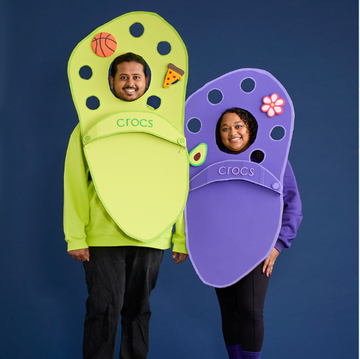
The Best Couples Halloween Costumes of 2025
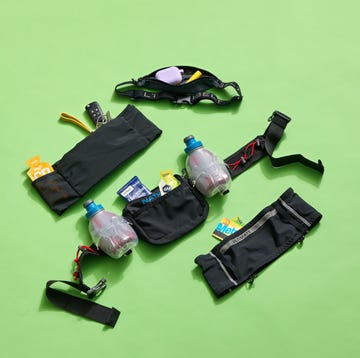
The Best Running Belts
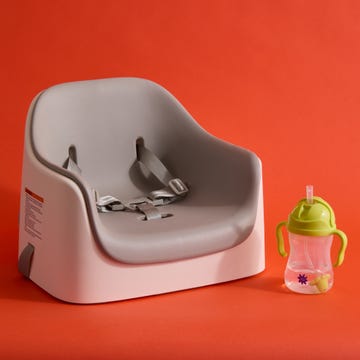
These Toddler Finds Changed Parents' Lives







